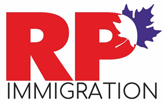
Low/High Wage LMIA
In Canada, a Low-Wage LMIA is an application for a Labour Market Impact Assessment (LMIA) where the offered wage for the job is below the provincial or territorial median hourly wage. A High-Wage LMIA, on the other hand, is an application where the offered wage for the job is at or above the provincial or territorial median hourly wage.
The LMIA process is an important part of the Canadian immigration system, as it is often required for Canadian employers who want to hire foreign workers. An LMIA is a document issued by the Government of Canada that allows a Canadian employer to hire a foreign worker to fill a specific job, provided that the employer can demonstrate that there is no Canadian worker available to fill the position.
It’s important to note that the Low/High Wage LMIA categories are subject to change and may vary depending on the specific province or territory in Canada. It’s recommended to consult with an immigration lawyer or consultant to determine the specific requirements for the LMIA process in your particular situation.
The first step is to determine if an LMIA is required for the particular job being offered. Certain occupations may be exempt from requiring an LMIA, such as those covered under international trade agreements or for certain types of work permits.
The employer must advertise the job for a certain amount of time, depending on the occupation and location of the job, to demonstrate that there are no Canadian citizens or permanent residents available to fill the position.
The employer must complete the LMIA application form and submit it, along with supporting documents and the required fees, to Employment and Social Development Canada (ESDC). ESDC will review the application and may request additional information or documentation from the employer.
If approved, the employer will receive a positive LMIA, which can then be used to support the foreign worker’s application for a work permit. The foreign worker must apply for a work permit and provide a positive LMIA as part of the application. The work permit application may also require additional documents, such as a valid passport, proof of qualifications or language proficiency, and proof of financial support.
ELIGIBILITY CRITERIA
The eligibility criteria for a Low/High Wage Labour Market Impact Assessment (LMIA) in Canada vary depending on the specific program or category. Here are some general eligibility requirements:
- The employer must have a valid job offer for the foreign worker, with a detailed description of the job duties and responsibilities.
- The employer must advertise the job to Canadian citizens and permanent residents to demonstrate that there are no qualified Canadians available to fill the position.
- The employer must offer wages and working conditions that meet the prevailing wage rates for the particular occupation and location. The wage rates may vary depending on whether the job is classified as a low-wage or high-wage position.
- The employer must demonstrate that hiring a foreign worker will not have a negative impact on the Canadian labor market, such as by displacing Canadian workers or affecting wages and working conditions.
- The employer must pay the required LMIA processing fees, which may vary depending on the type of LMIA and the location of the job.
DOCUMENT REQUIREMENT
- Job offer
- Proof of recruitment efforts
- Advertising results
- Education and experience
- Language proficiency
- LMIA application form
- Processing fee

